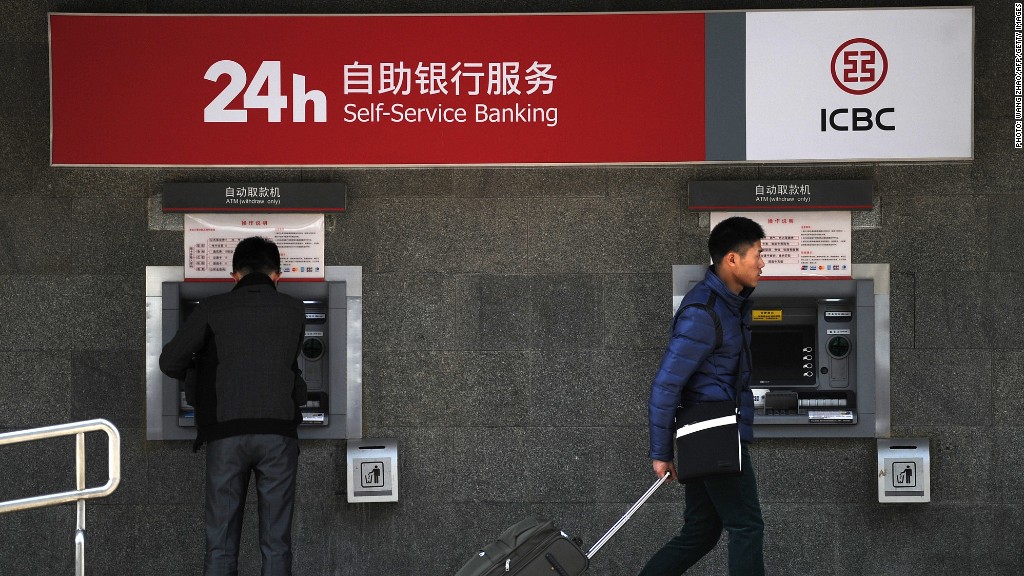
China is poised to start offering nationwide deposit insurance, a long-awaited reform that promises to protect most of the country's bank accounts.
The proposed insurance scheme will guarantee deposits up to 500,000 yuan ($81,395), according to a draft report released by China's State Council. The top-end limit would fully protect more than 99% of all bank accounts.
But what's good for typical Chinese could be bad for the 1%. Accounts with more than 500,000 yuan -- which make up 50% of total deposits -- will be left unprotected, according to Wei Yao, an economist at Societe Generale.
Here's the problem for big savers: China only needs deposit insurance if Beijing is now willing to let banks fail. In the past, the central government has always bailed out troubled institutions and made sure investors got their money back. Even investments offered by the country's massive shadow banking system have been considered safe.
This implicit guarantee from the government encouraged banks to make bad loans, and investors to buy the riskiest products around. Both parties could count on a government rescue.
Related: One Chinese company makes one-third of the world's cigarettes

Analysts have long argued that the way to fix this problem is for China to embrace failure. The government has acknowledged it needs to allow market forces to play a larger role in the economy, and help introduce more risk into the system.
The launch of a deposit insurance program is another clear message that the days of unlimited bailouts are over. Now, only small bank depositors will receive the government's backing.
"In a financial system where shadow banking investment is often protected, such developments represent a great leap of faith," Yao said. "This is the most critical, and yet riskiest reform measure ever undertaken."
Beijing now must carefully monitor how investors respond to the shifting landscape. Depositors could rush to move funds out of small banks and into larger institutions.
"The risk comes down to how the half of deposits -- and the entire bond as well as shadow banking investment -- that are unprotected will move about in response to the implementation," Yao said.


